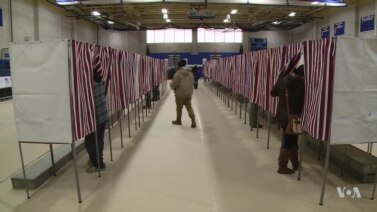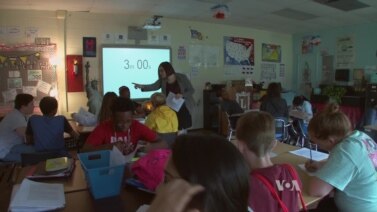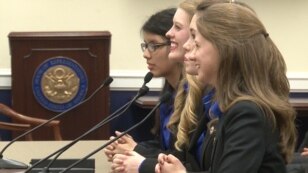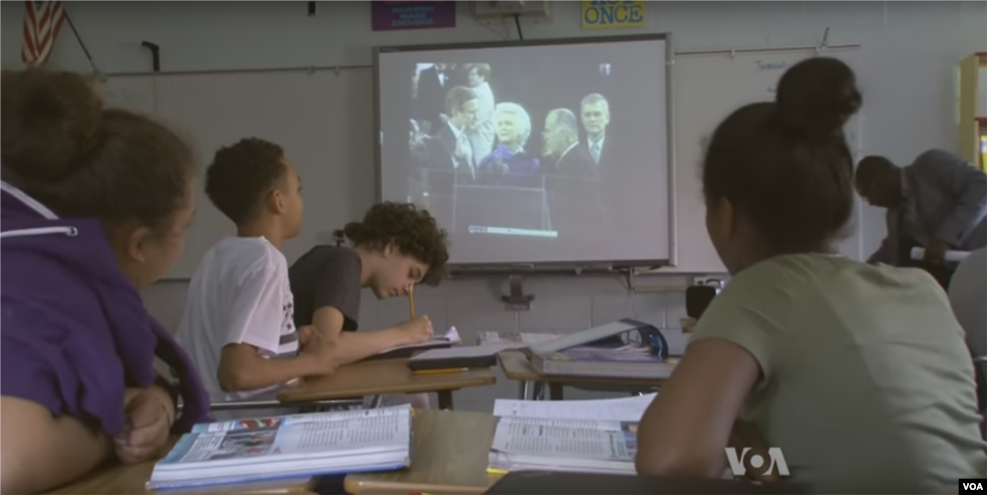
Has the American election campaign been difficult to watch?
Imagine if you had to explain it to a class of middle school students.
Every four years, teachers in the United States explain how the government works by talking with students about the presidential campaign.
But this year, some civics teachers report having difficulty when discussing the campaign. They had to explain concerns about candidates' behavior and a lack of substance in the political debate.
Javaughn Perkins is a teacher at George Washington Middle School in Alexandria, Virginia. He likes to have students watch campaign advertisements to look for their tools of persuasion.
Perkins thinks that by the age of 12 or 13 years, students are at a good age to start learning about government. However, the ups and downs of the election campaign has made this year more difficult.
"There used to be a time when I could literally come in, we'd pop on the Washington Post (newspaper) or CNN or any of the other websites, and I could just go right to the front page and [say], 'Let's have a conversation.'"
Perkins says that this year, newspaper stories are not always a good subject for 8th grade students. One example is the leaked video of candidate Donald Trump talking about sexually harassing women.
When Trump made fun of a disabled person, Perkins was again not sure how to talk about it with his class.
"When that initially broke, I had some thoughts about coming in and us having a conversation, and I held off."
Perkins felt that it would have directed students' attention away from teaching government, and would not have helped the school's anti-bullying efforts.
Students noticing the difference
Students appear to be noticing the problem, too. When Perkins asked his students how the campaigns have changed over the years, they felt that the political climate has changed. They said it now is more harmful --or bad -- than before.
"The older candidates were more formal, more structured. They mainly focused on topics that were concerning at the time such as wars. But now they're just like, 'Let's point as many fingers as we can at the other person.' It's childish! It's ridiculous! It's an embarrassment to this country!"
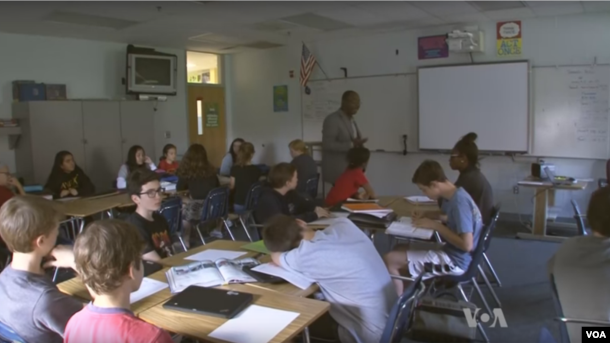
Perkins says the lack of discussion on major issues in the campaign has made his job harder.
"I've had less and less to choose from that will actually, again, get at the issues, even the candidates, in a very real way."
Alternative methods
While many teachers like to have mock debates in the classroom before an election, even that exercise is risky.
Brent Wathke, a teacher at DeLong Middle School, told The New York Times that a debate could invite students to say insulting words.
Instead, he had his class talk about the election campaign using “Socratic circles.” He separated the students into small groups, and had them use work sheets to answer questions that he asked.
His method was to let the students direct their own debate, and not step in unless he felt it was necessary.
One of his students told The New York Times, “I think if you repeat some of the stuff that Trump says, you could get sent to the principal's office. Maybe even expelled.”
The 8th grade students will not vote in a presidential election until 2024. This gives teachers one more chance to teach them about the U.S. elections.
I'm Phil Dierking
Reporter Steve Baragona wrote this story for VOANews.com. Phil Dierking adapted his report for Learning English. He also used information from other media. George Grow was the editor.
How do you think teachers should teach about the elections in class? We want to hear from you. Write to us in the Comments Section or on our Facebook page.
Words in This Story
civics - n. the study of the rights and duties of citizens and of how government works
bully - n. someone who frightens, hurts, or threatens smaller or weaker people
conversation - n. an informal talk involving two people or a small group of people
formal - adj. requiring or using serious and proper clothes and manners
harass - v. to annoy or bother someone in a constant or repeated way
literal - adj. involving the ordinary or usual meaning of a word
mock - v. to laugh at or make fun of someone or something by copying an action or a way of behaving or speaking
principal - n. the person in charge of a public school
